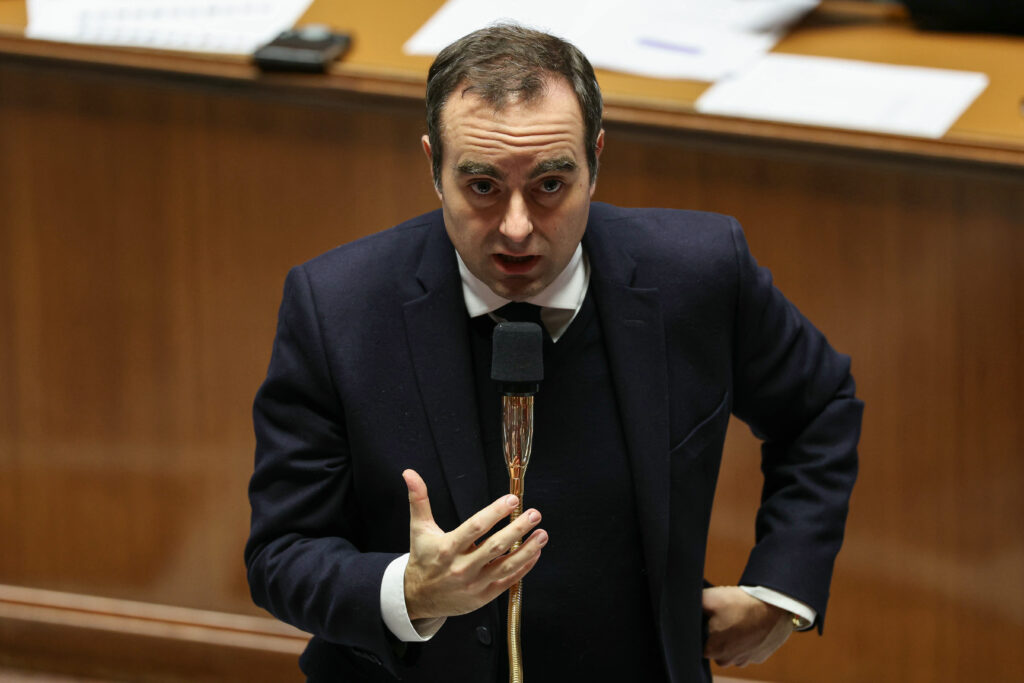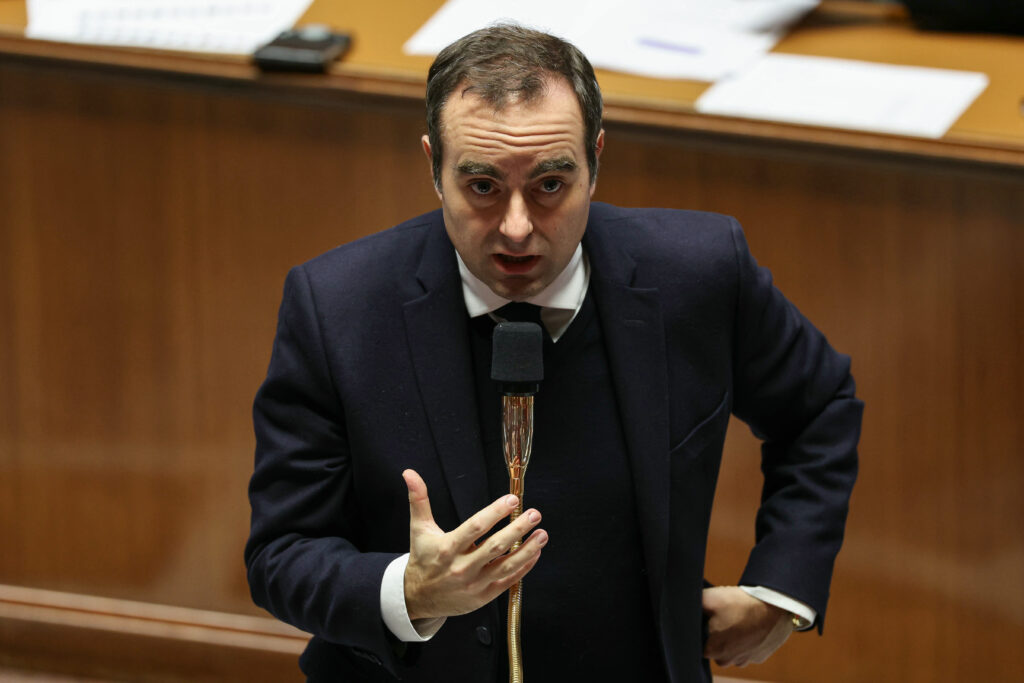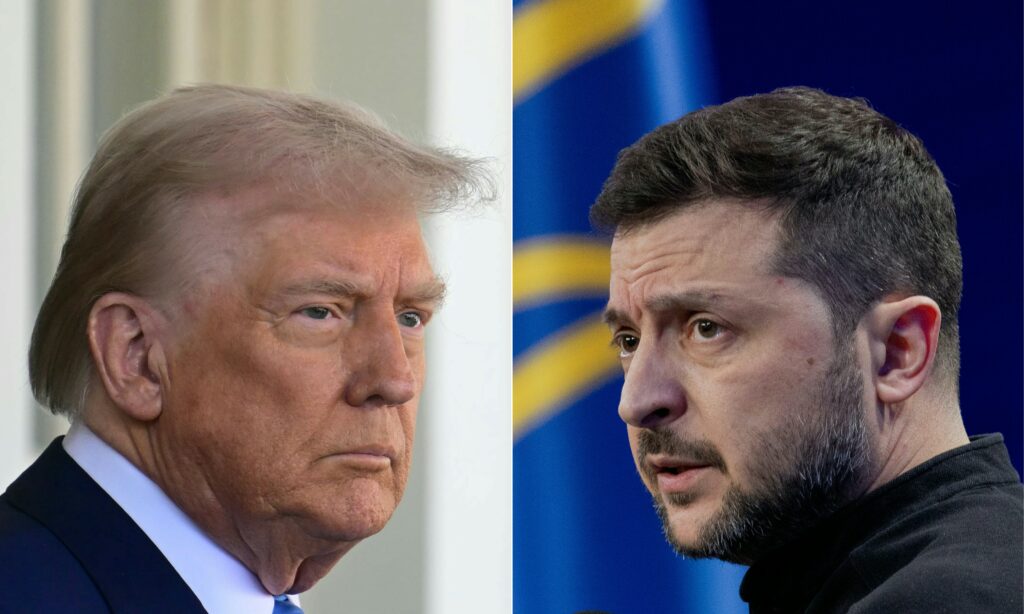Le président ukrainien Volodymyr Zelensky doit rencontrer dimanche en Floride Donald Trump pour évoquer la question sensible des territoires, dans le cadre des négociations visant à mettre fin à la guerre, sans succès concret pour l’instant.Près de quatre ans après le lancement de l’offensive à grande échelle de la Russie, l’Ukraine est bombardée quotidiennement. Une journaliste de l’AFP a entendu une série de fortes explosions à Kiev dans la nuit de vendredi à samedi alors que l’armée avait averti la population de nombreux drones et missiles menaçant plusieurs régions ukrainiennes.Les attaques de la nuit dans la capitale, qui ont notamment provoqué un incendie dans un immeuble résidentiel, ont fait au moins cinq blessés dont quatre ont été hospitalisés, selon le maire Vitali Klitschko.Les pourparlers en vue d’un règlement du conflit se sont accélérés ces dernières semaines, à la suite de la présentation d’un plan dévoilé par Donald Trump. Alors que ce document était considéré initialement par Kiev et les Européens comme trop favorable à Moscou, Volodymyr Zelensky a dévoilé cette semaine les détails d’une nouvelle mouture, retravaillée mais critiquée par Moscou, qui a accusé l’Ukraine de vouloir “torpiller” les négociations.Cette version prévoit un gel de l’actuelle ligne de front sans offrir de solution immédiate concernant les revendications territoriales de la Russie, qui occupe plus de 19% de l’Ukraine.”Nous avons un programme chargé, cela se passera pendant le week-end, je pense dimanche, en Floride, où nous aurons une réunion avec le président Trump”, a déclaré vendredi le chef de l’Etat ukrainien à des journalistes, dont ceux de l’AFP. Son cabinet a ensuite confirmé que la rencontre était “prévue” pour dimanche en Floride, où le président américain passe les fêtes de fin d’année dans sa résidence Mar-a-Lago.Selon M. Zelensky, les discussions porteront sur les “questions sensibles” du sort du Donbass, une région industrielle et minière de l’est l’Ukraine que Moscou revendique, et de la centrale nucléaire de Zaporijjia (Sud) occupée par les soldats russes.Les deux hommes évoqueront aussi les garanties de sécurité que les Occidentaux pourraient fournir à l’Ukraine dans le cadre d’un éventuel accord de paix avec la Russie, a-t-il poursuivi.”Il y a certaines questions dont nous ne pouvons discuter qu’au niveau des dirigeants”, a expliqué le président ukrainien.- Chiffon rouge -Volodymyr Zelensky “n’a rien tant que je ne donne pas mon accord”, a averti vendredi Donald Trump, dans un entretien au site internet Politico. “Je pense que ça se passera bien avec lui. Je pense que ça se passera bien avec (le président russe Vladimir) Poutine”, avec lequel il prévoit de s’entretenir “bientôt”, a-t-il relevé.La dernière version du plan américain, un document en 20 points, propose de geler les positions des deux camps sans répondre à la demande russe d’un retrait des forces ukrainiennes des quelque 20% de la région de Donetsk – métropole du Donbass – qu’elles contrôlent encore.Contrairement à la version originale rédigée par les Américains et présentée il y a plus d’un mois, le nouveau texte ne comprend plus aucune obligation juridique de non-adhésion à l’Otan pour l’Ukraine, un chiffon rouge pour Moscou qui a présenté cette question comme une des causes de la guerre.Pour ces raisons, l’accord de la Russie à ce document en l’état paraît improbable.Le nouveau texte “diffère radicalement” de ce qui avait été négocié entre Washington et Moscou, a constaté vendredi le vice-ministre russe des Affaires étrangères, Sergueï Riabkov, appelant à revenir aux ententes antérieures, faute de quoi “aucun accord ne pourra être conclu”.”Sans une résolution adéquate des problèmes qui sont à l’origine de cette crise, il sera tout simplement impossible de parvenir à un accord définitif”, a-t-il affirmé, accusant Kiev et ses alliés européens de “redoubler d’efforts pour torpiller” les tractations diplomatiques.- Les Européens se concertent -Le porte-parole du Kremlin, Dmitri Peskov, a fait savoir qu’un “contact téléphonique” avait “eu lieu” entre Russes et Américains mais a refusé d’en révéler les détails car “la diffusion de ces informations pourrait avoir un impact négatif sur le processus de négociation”.Avant sa rencontre avec Donald Trump, M. Zelensky s’est entretenu vendredi avec plusieurs dirigeants dont le chancelier allemand Friedrich Merz, aindi qu’avec le secrétaire général de l’Otan, Mark Rutte.Downing Street a de son côté fait savoir que le Premier ministre britannique Keir Starmer avait échangé vendredi après-midi avec le président français Emmanuel Macron, et M. Merz, réaffirmant leur objectif d’une “paix durable”.En attendant une percée dans les négociations, l’armée russe a accéléré ses avancées ces derniers mois. Mardi, les troupes ukrainiennes avaient dit s’être retirées de Siversk, une ville de l’est, face aux assauts ennemis. Une prise facilitant l’approche des dernières grandes cités du Donbass encore sous contrôle ukrainien, Kramatorsk et Sloviansk.Non loin du front dans le nord-est, deux personnes ont été tuées et quatre blessées vendredi dans une frappe russe sur Kharkiv, la deuxième ville d’Ukraine.




